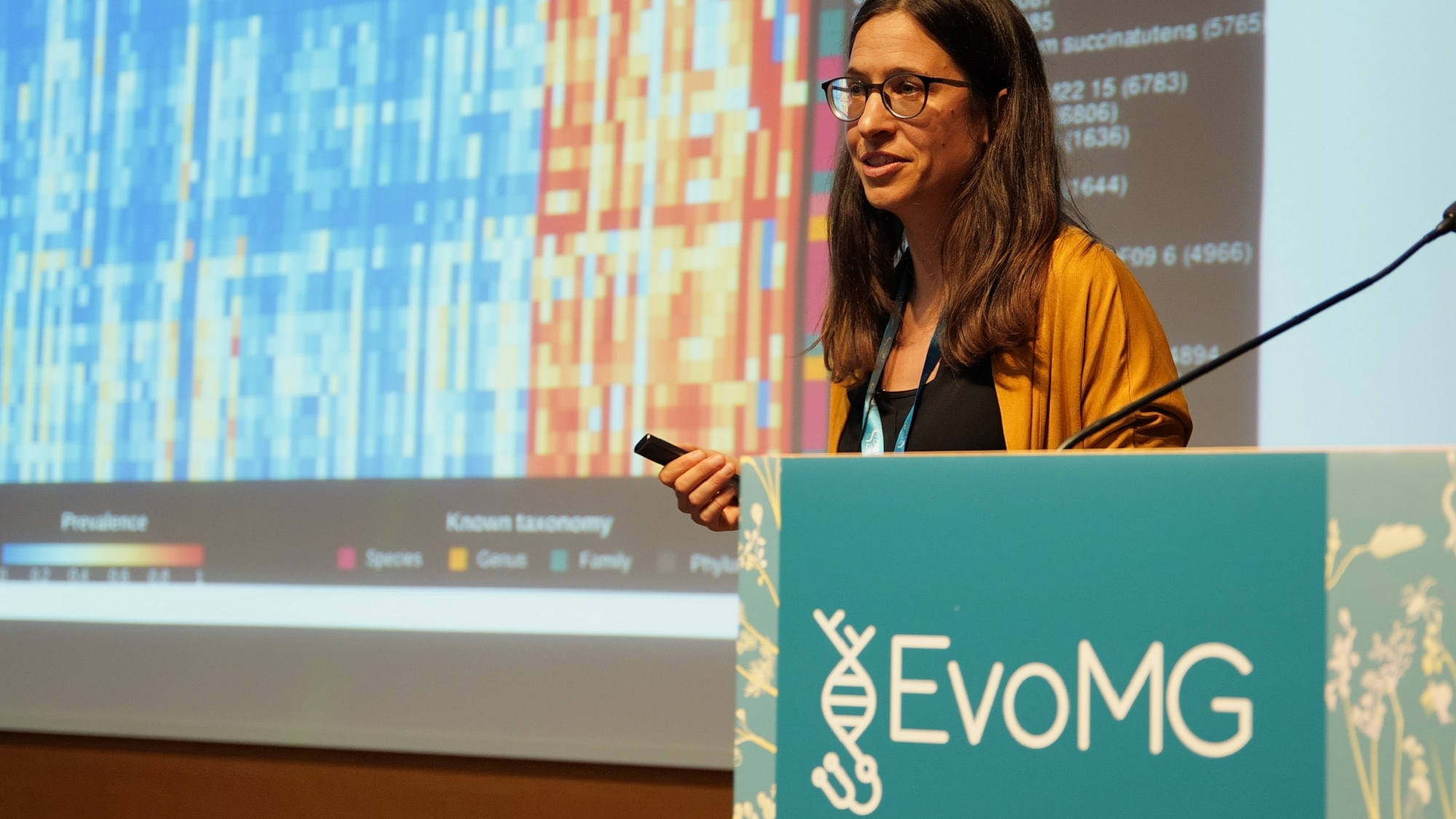The 3-day Inaugural Symposiumof the Evolutionary Medical Genomics Program took place last week in the PRBB Auditorium, with around 200 attendees.
The Joint Program on Evolutionary Medical Genomics (EvoMG Program), the first of its kind worldwide, is a collaborative effort from three research institutions at the Barcelona Biomedical Research Park (PRBB): the Centre for Genomic Regulation (CRG), the Department of Medicine and Life Sciences (MELIS-UPF), and the Institute for Evolutionary Biology (IBE: CSIC-UPF). Its aim is to bring together researchers from different areas to promote the application of evolutionary approaches to better understand disease and improve human health.
“Our evolutionary history has shaped our genomes and thus our disease susceptibility. Each person can be viewed as the result of an evolutionary process that started billions of years ago and continues to this day”, explains Manuel Irimia, a CRG researcher and ICREA Research Professor who is behind the new program.
Indeed, genomic diversity – between species, populations or even cells – can be seen as a signature of this evolutionary process. Exploiting this diversity to improve human health is the overarching goal of the Evolutionary Medical Genomics program, which is backed with a provisional funding of one million euros from the Generalitat de Catalunya.
“The EvoMG program will explore why humans might have evolved to be susceptible to particular diseases in the first place, and how we can use evolution to manage these conditions”
The meeting brought together researchers from diverse fields to explore recent genomic advances and fresh approaches to disease.
Manuel Irimia, the Coordinator of the Evolutionary Medical Genomics Research Program participated in the opening of the inaugural event along with Salvador Carranza, director of the IBE; Luis Serrano, director of the CRG; Cristina Pujades, Vice-Rector for Research at UPF; and Núria Montserrat, the current Minister of Research and Universities in the Government of Catalonia.

A brave (and broad) new field
Research in Evolutionary Medical Genomics includes a wide range of topics, all of which have in common their evolutionary approach to understanding and tackling human disease. These include personalized medicine, the evolution of the disease, comparative genomic models of disease, the evolution of aging, cancer evolution, microbial pathogenicity and microbiome-host (co-)evolution, viruses, and evolutionary immunology.
The field has already made real world impact, for example during the COVID-19 pandemic, when evolutionary analyses of SARS-CoV-2 genomes were instrumental in tracking the virus’s spread and predicting new variants. The cat and mouse game between antibiotic development and microbial resistance is another area where evolutionary insights are crucial.
Ongoing advances in medical genomics and the increasing diversity of available genomes make this field very timely and attractive to both evolutionary biologists working on disease-relevant projects as well as other researchers interested in human health or even clinicians intrigued by novel ways of thinking about disease.







